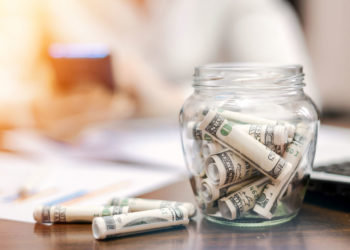House prices in Britain hit a new high last month, although they are not rising as fast as they were earlier in the year as the stamp duty holiday nears its end.
Having increased by another £1,789 in August, the average property price is now £262,954, according to the latest Halifax house price index — the highest since the lender started tracking pricing data almost 40 years ago.
Last month’s rise was “relatively modest”, Russell Galley, Halifax’s managing director, said, with the annual rate of house price inflation falling to 7.1 per cent, its lowest in five months. That compares with growth of 9.5 per cent in the year to May as buyers rushed to get deals over the line before the stamp duty cut started to be phased out at the end of June. Initially, homebuyers could save as much as £15,000, although that has now been reduced to £2,500. From the beginning of next month, stamp duty rates will return to their usual level.
Despite the recent slowdown, the typical British house has risen in value by £23,600 or 9.9 per cent since last summer, when the industry started to emerge out of its enforced shutdown.
Reflecting the jump in prices over the past year, the housebuilder Vistry reported this morning that its first-half performance was “significantly ahead of expectations”. It turned a statutory pre-tax profit of £156.2 million in the first six months of 2021, versus a loss of £12.2 million in the same period of last year. Amid “positive consumer demand”, the company’s houses have been fetching £351,000 on average, £19,000 more than in the opening months of 2020. Sales in the period almost doubled to £1.1 billion.
House prices continue to rise fastest in Wales, up 11.6 per cent over the past year, the Halifax data showed. That compares with a year-on-year increase of only 1.3 per cent in London, which continues to lag the rest of the country. Over the past three months, prices in the capital have fallen by 0.3 per cent — the only region to have recorded a fall in that period.
The looming ending of the stamp duty holiday has been reflected in the number of transactions being completed. In July, 73,740 residential homes were sold, according to government data, less than half of the 198,420 deals that were completed in June.
“Much of the impact from the stamp duty holiday has now left the market, as highlighted by the drop in industry transaction numbers compared to a year ago,” Galley said.
Still, he predicts that house prices will continue to rise with people continuing to look for extra space as they work from home more often. “Moreover, the macroeconomic environment is becoming increasingly positive, with job vacancies at a record high and consumer confidence returning to pre-pandemic levels. Coupled with a supply of properties for sale that looks increasingly tight, and barring any reimposition of lockdown measures or a significant increase in unemployment as job support schemes are unwound later this year, these factors should continue to support prices in the near-term.”
Read more:
House prices reach new high in August















